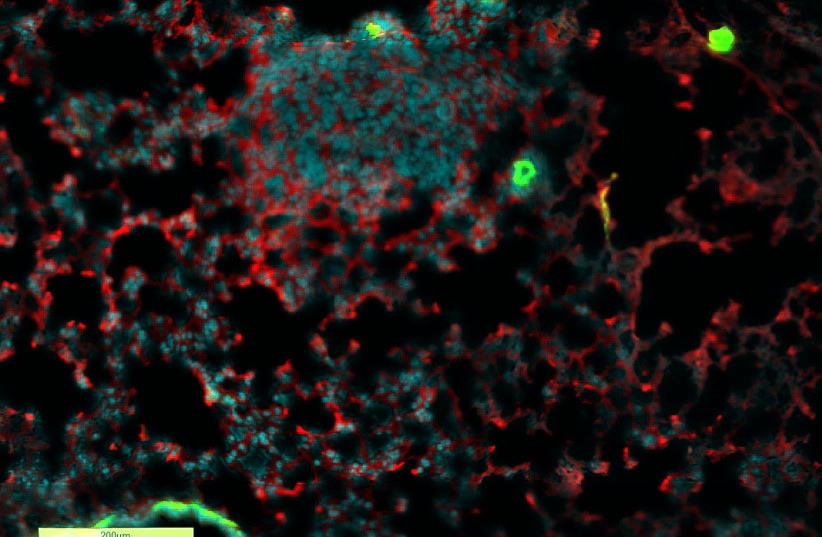When a breast cancer diagnosis knocked me down, Jewish women lifted me up
On the way home from the hospital where I was given my diagnosis of grade 2 invasive lobular breast cancer, I directed my husband, through my tears, to stop at the kosher store.
“I don’t want to see anyone right now,” I said, knowing the inevitability of running into someone we knew in the small Jewish community where we live, “so can you go in?” He pulled into the parking lot. “We need challah,” I reminded him. It was Thursday, after all. The next evening was Shabbat. Time doesn’t stand still for cancer.
My hospital appointment took place two days after the front page of the New York Times declared: “When Should Women Get Regular Mammograms: At 40, U.S. Panel Now Says.” I was 48. Breast cancer has long been the second most common cancer for women, after skin cancer. It is also the most lethal after lung cancer. Statistically, though, most women affected are postmenopausal, so unless there was a specific reason to test early, women were screened regularly from the age of 50. Now, the advice has changed. Breast cancer is rising in younger women. For women in their 40s, the rate of increase between 2015 and 2019 doubled from the previous decade to 2 per cent per year.
Why is this happening? Air pollution? Microplastics? Chemicals in our food? We don’t know.
In the days following my appointment, there was a proliferation of articles about the topic. Importantly, doctors explained that the cancer women are diagnosed with in their 40s tends to be a more aggressive type of cancer. Cancers in premenopausal women grow faster; many breast cancers, like mine, are hormone sensitive. (Got estrogen? Bad luck for you.)
 An image of lung with breast cancer metastasis, surrounded by inflammatory complement protein: Cyan: Cell nuclei; Red: Complement protein; Green: blood vessels; (credit: LEA MONTERAN)
An image of lung with breast cancer metastasis, surrounded by inflammatory complement protein: Cyan: Cell nuclei; Red: Complement protein; Green: blood vessels; (credit: LEA MONTERAN)Everyone has advice about breast cancer
When I posted the news about my diagnosis — on Facebook, because I’m an oversharing type — I was stunned by the number of friends my age, more discreet about their lives, who sent me messages to tell me they had recently gone through the same thing. Everyone had advice. “If you can do a lumpectomy, you’re very lucky. It’s not a major operation, and you’ll preserve your breast.” “Cut it all off! Immediately! Just get rid of all it and you’ll never worry again! Do you want to spend the rest of your life in mammogram scanxiety?” “Ask plastic surgeons for pictures, and pick the cutest new boobs out there. You won’t regret it.” “The radiation burns—that’s something no one ever tells you. Get yourself some Lubriderm and lidocaine, mix into a slurry, slap it on a panty liner, and tuck it in your sports bra.”
I’m not sure why I thought I was immune. Or maybe I didn’t — maybe I just never gave it much thought. Even when I found the lump on my breast, I was dismissive. I went to the doctor, and she asked if anyone in my family had had breast cancer. “Oh, who knows? They were all murdered,” I said blithely. Her eyes bugged. “In the Holocaust,” I added. “Your…mother? Grandmother? Sisters?” “Oh! No, no history of breast cancer in my immediate family.”
Add to that, my mother and sister both tested negative for the BRCA gene mutations, and that’s my Ashkenazi side. The thing is, though, most women who test positive for breast cancer have no family history of it.
But also, I’d done everything right! If you look through the preventative measures, I took all of them. I had three kids by 35, and I breastfed them. I have a healthy, mostly plant-based diet; I walk and cycle everywhere. I’m not a drinker or smoker. I eat so many blueberries!
Jewish women should be on alert about breast cancer
Several of the articles that have been published in recent days are emphasizing the particular danger for Black women, with good reason: They have twice the mortality rate of white women. But as I did my research, I realized that Jewish women should also be on high alert. We’ve long known that one in forty Ashkenazi women has the BRCA gene mutation, significantly raising the risk of breast cancer (50% of women with the gene mutation will get breast cancer) as well as ovarian cancer, which is much harder to detect and far more deadly. So many of my friends who reached out to me to tell me of their breast cancer experiences are Jewish; interestingly, not one has the BRCA mutation. Are these high numbers indicative or anecdotal? Are Jewish women generally more susceptible to breast cancer? This seems to be an important area of future research.
For me, that research will come too late — as did the guidance. For now, I have to accept that this cancer diagnosis is part of my life, that just as I will pick up challah every Thursday, I will wake every morning and take my hormone-blocking Tamoxifen. I will lose sleep every night about which surgery to have until I have the surgery, and then I will lose sleep every night about whether it was fully successful. And there’s plenty more in store for me that isn’t pretty; so it goes.
But here’s a good thing that’s already come out of this diagnosis: When the responses to my Facebook post flooded in, they were not only along the lines of “Refuah shleimah” and “I’ve just been through this too,” but also, “Thank you for sharing! I’m going to book my mammogram right now!”





Comments are closed.